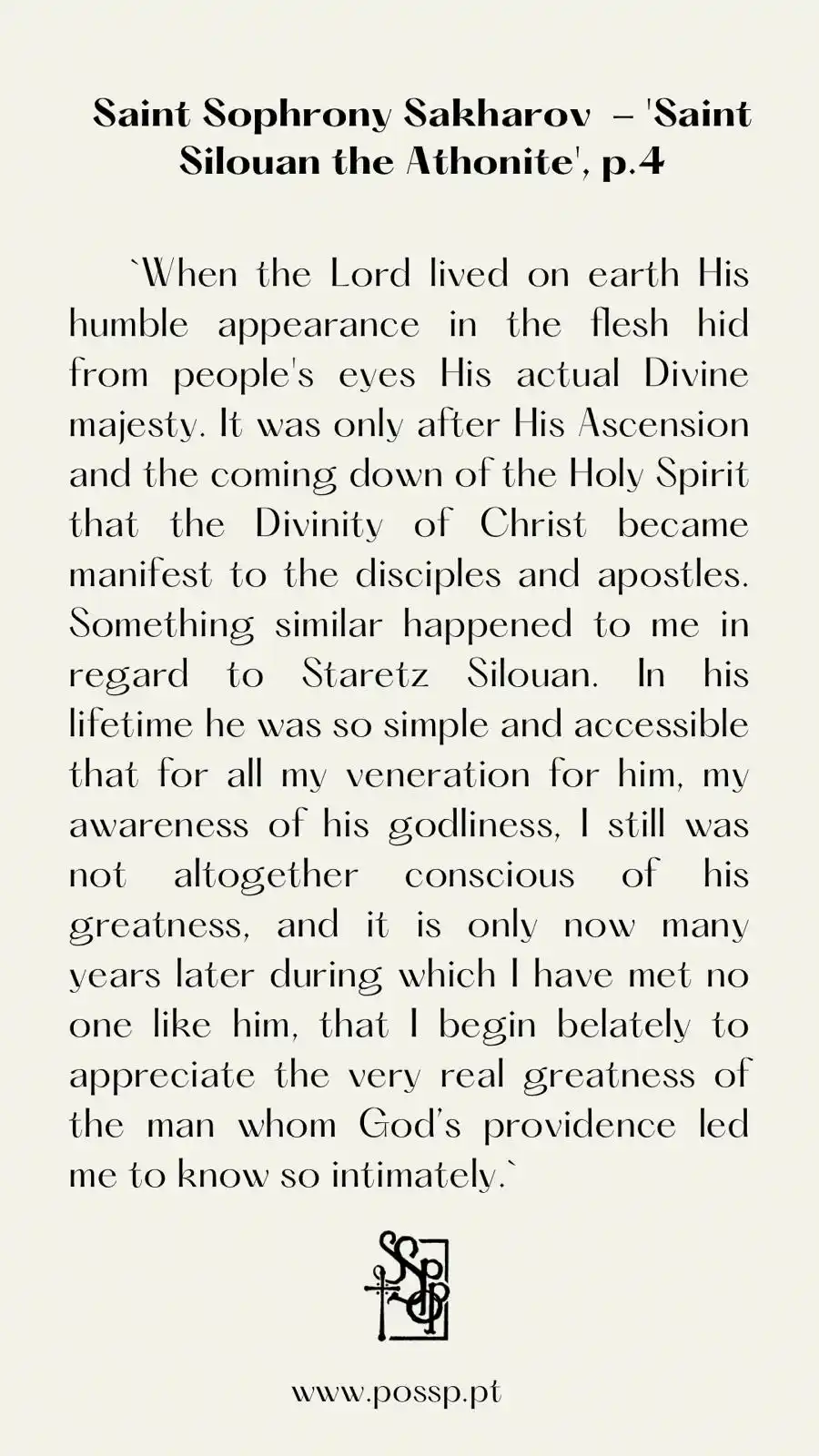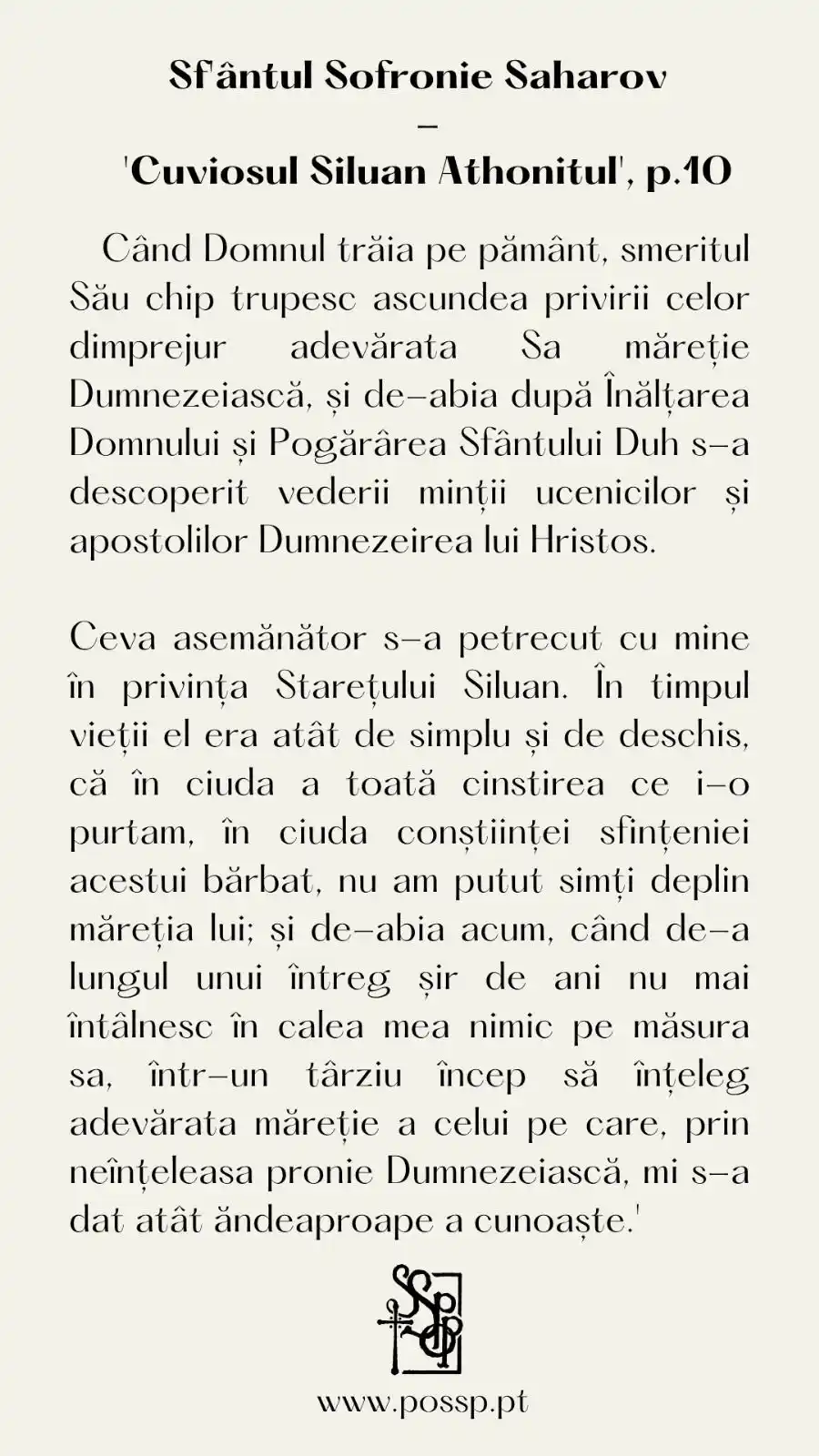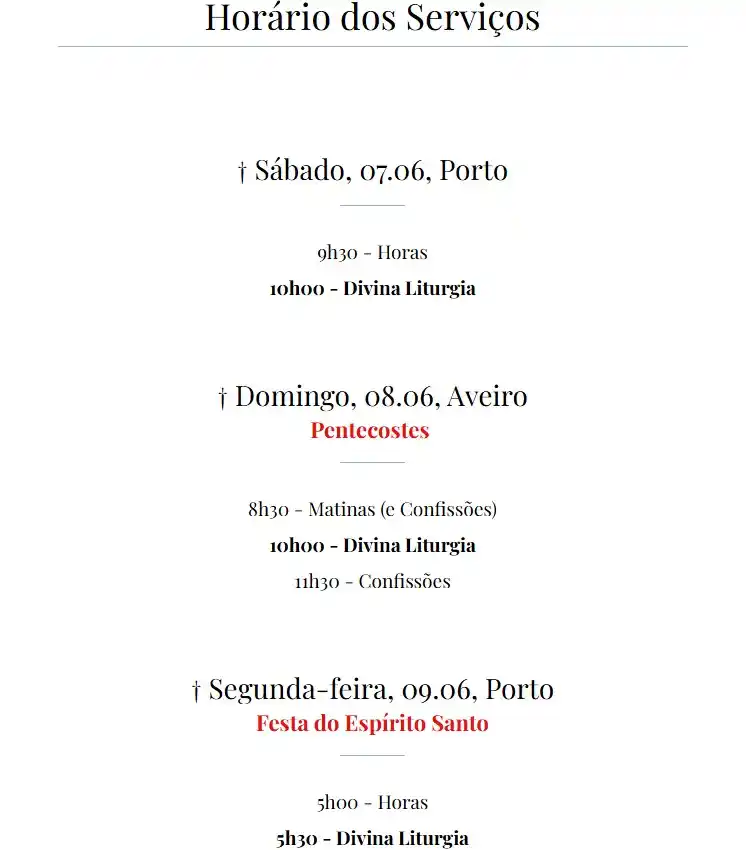
Paróquia Ortodoxa „São Sofrónio de Essex” Porto
28 subscribers
About Paróquia Ortodoxa „São Sofrónio de Essex” Porto
www.possp.pt https://www.facebook.com/people/Parohia-Sf%C3%A2ntul-Sofronie-de-la-Essex-Porto/61566474861027/ https://x.com/possp24 https://www.instagram.com/saosofronioporto/
Similar Channels
Swipe to see more
Posts

Despre Rugăciune - Cuviosul Sofronie Athonitul Grea este nevoința pentru rugăciune: se schimbă stările duhului nostru; uneori rugăciunea curge în noi precum un râu puternic, alteori însă inima rămâne uscată. Dar să fie de cât mai scurtă durată slăbirea puterii rugăciunii. Rugăciunea nu arareori înseamnă a destănui lui Dumnezeu toată jalnica noastră stare: neputință, negrijanie (nepăsare), îndoieli, frici, zbucium, deznădejde - într-un cuvânt, tot ce este legat de împrejurările existenței noastre; a-I destăinui fără a căuta expresii elegante și nici măcar vreo succesiune logică... Adesea acest mijloc de a comunica cu Dumnezeu este începutul unei rugăciuni-convorbiri.

Programul de săptămâna aceasta https://possp.pt O horário desta semana https://possp.pt/pt/

Programul de săptămâna aceasta https://possp.pt O horário desta semana https://possp.pt/pt/

RO: Sfântul Sofronie Saharov – „Cuviosul Siluan Athonitul” p. 44 „Sufletul care a cunoscut pe Dumnezeu, care a fost dus până la vederea vecinicei (veșnicei) lumini, iar apoi a pierdut acel har, se află într-o stare pe care nu și-o poate închipui cel ce nu a cunoscut toate acestea în aceeași măsură. Suferința și durerea unui astfel de suflet sunt de nelămurit altora; el cearcă (încearcă) o anume durere metafizică. Pentru cel ce a văzut lumina vieții fără-de-început, care a cunoscut deplinătatea, bucuria și negrăita dulceață a dragostei lui Dumnezeu, lumea aceasta nu mai are de acum nimic ce l-ar mai putea încânta. Într-un oarecare sens viața pământească îi devine împovărâtoare, fără bucurie, iar el cu plânset caută din nou viața de care i-a fost dat să se atingă. Bărbatul ce și-a pierdut soția, făptura adânc și fierbinte iubită, sau mama ce și-a pierdut iubitul fiu cel unul-născut, doar în parte pot înțelege durerea celui care a pierdut harul, căci dragostea lui Dumnezeu, și prin puterea sa, și prin vrednicia sa, și prin dulceața sa, și prin neasemuita frumusețe și stăpânie, nemăsurat întrece toată altă iubire omenească, și de aceea Sfântul Ioan Scărarul spune despre cei ce au pierdut harul că suferința lor covârșește suferința celor osândiți morții sau a celor ce își plâng mortul.”

When the Lord lived on earth His humble appearance in the flesh hid from people's eyes His actual Divine majesty. It was only after His Ascension and the coming down of the Holy Spirit that the Divinity of Christ became manifest to the disciples and apostles. Something similar happened to me in regard to Staretz Silouan. In his lifetime he was so simple and accessible that for all my veneration for him, my awareness of his godliness, I still was not altogether conscious of his greatness, and it is only now many years later during which I have met no one like him, that I begin belately to appreciate the very real greatness of the man whom God’s providence led me to know so intimately.


*Sister Magdalen from Essex - 'Reflections on Children in the Orthodox Church Today'*, p.14 `Word about spiritual life in familly.` Christian life is life in the image of God in three Persons – life together with others. It is very rare that someone is cast into complete solitude, or called by God into the desert; then he is obliged to live in isolation. For most of us Christian life means life in a community of one kind or another – and hermits themselves usually have to pass even decades in a community before living alone. As Saint Silouan put it: ‘My brother is my life’. A married person can say – and it is the only theologically correct way to live – ‘My wife (or husband) and children are my life. They are the content of my life; it is living with them that I must learn Christ-like love.’ The criterion of my spiritual health is this: what is the state of the relations between me and those with whom I live? No other criterion is higher. Family life is the measuring-stick of Christian progress for those who live in the world.

EN: Saint Sophrony Saharov – „Saint Silouan the Athonite”, p. 40 „The soul that has known God, that has been raised to contemplation of the world of eternal light, and then has lost grace, find herself in a state unimaginable to anyone ignorant of all this to the same extent. There are no words to express the suffering and sorrow. The soul experiences a pelicular metaphysical pain. This world contains nothing that could captivate one who has seen the light of unoriginate being, who has experienced the fulness, the joy and inexpressible sweetness of Divine love. Somehow earthly life becomes burdensome, joyless, and weeping, he seeks again the life that was given to him to touch upon. The husband who has lost his beloved wife, or the mother her precious son, can but partially understand the grief of one who has lost grace, since its incomparable beauty and might vastly transcend every sort of human love. This is why St. John Climacus says the suffering of those who have lost grace exceeds the suffering of men condemned to death or of them that weep over their dead.”
















